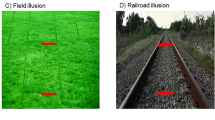Abstract
Suppose Ted is in an ordinary house in good viewing conditions and believes red, his table is red, entirely because he sees his table and its color; he also believes not-white, it is false that his table is white and illuminated by a red light, because not-white is entailed by red. The following three claims about this table case clash, but each seems plausible: 1. Ted’s epistemic position is strong enough for him to know red. 2. Ted cannot know not-white on the basis of red. 3. The epistemic closure principle, suitably restricted, is true. Stewart Cohen has called this three-way clash of intuitions the problem of easy knowledge. If we wish to resolve the clash without accepting skepticism, we seem to have two options. According to the hard argument, the best response is to reject 3. The easy argument rejects 2. But there may be a third alternative, the reverse argument, which rejects 1 without ceding a substantial amount of ground to the skeptic. In this essay I criticize recent versions of the reverse argument and the hard argument, thereby lending support to the easy argument.
Similar content being viewed by others
References
Armstrong, D. (1973). Belief, Truth and Knowledge. Cambridge: Cambridge University Press.
Cohen, S. (2002). Basic knowledge and the problem of easy knowledge. Philosophy and Phenomenological Research, 65(2), 309–329.
Cohen, S. (2005). Why basic knowledge is easy knowledge. Philosophy and Phenomenological Research, 75(2), 417–430.
Dretske, F. (1970). Epistemic operators. Journal of Philosophy, 67, 1007–1023.
Dretske, F. (2003). Skepticism: what perception teaches in Luper 2003b.
Dretske, F. (2005). Is knowledge closed under known entailment? in Steup 2005.
Fumerton, R. (1995). Metaepistemology and skepticism. Lanham, MD: Rowman and Littlefield.
Harman, G. (1968). Knowledge, inference and explanation. American Philosophical Quarterly, 5, 164–173.
Harman, G. (1986). Change in view, Cambridge: MIT Press; partially reprinted in S. Luper, Essential Knowledge, New York: Pearson Longman, 2004.
Harman, G., & Sherman, B. (2004). Knowledge, assumptions, lotteries. Philosophical Issues, 14, 492–500.
Hawthorne, J. (2006) Knowledge and lotteries. Oxford: Oxford University Press.
Kyburg, H. (1961). Conjunctivitis. Probability and the logic of rational belief. Middletown, Conn.: Wesleyan University Press.
Luper, S. (1984). The epistemic predicament: knowledge, nozickian tracking, and skepticism. Australasian Journal of Philosophy, 62, 26–50.
Luper, S. (ed.) (1987a). The possibility of knowledge: nozick and his critics, Totowa, NJ: Rowman and Littlefield.
Luper, S. (1987b). The causal indicator analysis of knowledge. Philosophy and Phenomenological Research, 47, 563–587.
Luper, S. (2003a). Indiscernability skepticism. In S. Luper 2003b.
Luper, S. (2003b) The Skeptics. In S. Luper (ed.), Hampshire: Ashgate Publishing, Limited.
Luper, S. (2005). Epistemic closure principle. Stanford University encyclopedia of philosophy. In: Edward N. Zalta (Ed.), 2002.
Luper, S. (2006). Dretske on knowledge closure. Australasian Journal of Philosophy, 84, 379–394, (2006).
Luper, S. (2007). Re-reading G. E. Moore’s ‘certainty. Philosophical Papers, 36(1), 151–163.
Nozick, R. (1981). Philosophical explanations. Cambridge: Harvard University Press.
Sosa, E. (2000). Neither contextualism nor skepticism. In Luper 2003b, 165–182.
Steup, M., & Sosa, E. (eds.) (2005). Contemporary Debates in Epistemology. Blackwell, Malden, MA.
Van Cleve, J. (2003). Is knowledge easy-or impossible? Externalism as the Only Alternative to Skepticism. In Luper 2003b, 45–61.
Vogel, J. (1990). Are there counterexamples to the closure principle? In M. Roth & G. Ross (eds.) Doubting: Contemporary perspectives on skepticism. Dordrecht: Kluwer Academic Publishers.
Vogel, J. (2000). Reliabilism leveled. Journal of Philosophy, 97, 602–623.
Acknowledgements
A brief version of this essay was presented at Bled Conference on Epistemology, May 28-June 2, 2007. I thank the participants, my colleague Curtis Brown, and anonymous referees for their comments.
Author information
Authors and Affiliations
Corresponding author
Rights and permissions
About this article
Cite this article
Luper, S. The Easy Argument. Acta Anal 22, 321–331 (2007). https://doi.org/10.1007/s12136-007-0014-9
Received:
Accepted:
Published:
Issue Date:
DOI: https://doi.org/10.1007/s12136-007-0014-9




